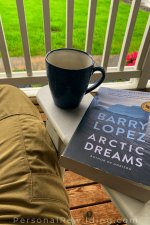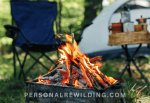- Home
- Nature Writing
- Vesper Flights Review
Review:
Vesper Flights by Helen Macdonald
British author Helen Macdonald is best known for her award-winning 2014 memoir, H is for Hawk, a poignant and lovingly-written memoir about her experiences training a goshawk in the period following her father’s death.
In 2020, Macdonald released Vesper Flights, a collection of short nature writing essays on a variety of topics ranging from wild boars to a scientific expedition into the Atacama desert to finding the numinous in the everyday.
Macdonald brings her fine ear for musical prose and her acute observations to bear on her various subjects. The essays themselves are of varying length and depth, but even the slightest of them packs a punch.
"Vesper Flights"
The title essay, “Vesper Flights”, refers to a behavior observed in swifts. Every evening, just before sunset, “all at once, as if summoned by a call or a bell, they rise higher and higher until they disappear from view”. Macdonald says that for many years it was believed the birds were simply flying higher to sleep on the wing, as some birds do.
But it has been determined that what swifts are doing with these evening flights is twofold. They are flying to the top of the atmospheric layer where steering winds for large-scale weather systems are found, giving them an opportunity to forecast weather patterns and adjust their feeding and migratory routes.
The second object of these flights is orientation. Macdonald writes:
“Stars, wind, polarised light, magnetic cues, the distant rubble of clouds a hundred miles out, clear cold air, and below them the hush of a world tilting towards sleep or waking towards dawn. What they are doing is flying so high they can work out exactly where they are, to know what they should do next. They’re quietly, perfectly, orienting themselves.” (165).
Macdonald draws parallels between this behavior of swifts and our human defenses against rising wind and looming storms. There is something “instructive” in this behavior, something humans can learn from, orienting ourselves and looking beyond today into the future.
A Cohesive Collection
The range of subjects Macdonald covers in Vesper Flights is impressive. No less impressive is the success she has with somehow making the collection feel cohesive even while addressing so many disparate topics.
In “Tekels Park”, for example, Macdonald explores nostalgia for her childhood home, a house on an ancient estate owned by the Theosophical Society. This is now part of a housing development along a multi-lane motorway. But Macdonald investigates more than the wistfulness of a bygone home, but also the wider losses that it encompasses – biodiversity, habitat loss, endless “modernization”.
Macdonald focuses not on the loss of the home itself, but on a single nine-acre meadow that had stood nearby, a riot of wildflowers and wild grasses and butterflies.
“We so often think of the past as something like a nature reserve: a discrete, bounded place we can visit in our imaginations to make us feel better. I wonder how we could learn to recognise that the past is always working on us and through us, and that diversity in all its forms, human and natural, is strength. That messy stretches of species-rich vegetation with all their attendant invertebrate life are better, just better than the eerie, impoverished silence of modern planting schemes and fields.” (35)
In “High-Rise”, Macdonald goes bird spotting with a renowned ornithologist atop the Empire State Building, indicating that wild life goes on all around us, even above one of the most densely-populated cities in the world.
“The sky may seem like an empty place,” Macdonald says, “just as we once thought the deep ocean to be a lifeless void. But like the ocean, this is a vast habitat full of life – bats and birds, flying insects, spiders, windblown seeds, microbes, drifting spores.” (37).
While in “Deer in the Headlights”, Macdonald takes on the subject of deer/car collisions in grim and grisly detail, allowing the narrative to tell us more about ourselves than about the poor battered animals.
If there is a central theme of this collection it is built around our relationship with nature and the wild, about how we build and project our preconceptions about the natural world, and how we attempt to shape the world to our vision of how it “should be” instead of allowing it to be how it is.
Macdonald says in “Tekels Park”:
“…the world is full of people busily making things into how they think the world ought to be, and burning huge parts of it to the ground, utterly and accidentally destroying things in the process without even knowing they are doing so. And that any of us might be doing that without knowing it, any of us, all the time.” (34).
Vesper Flights is a beautifully crafted set of interconnected nature essays, and is absolutely worth exploring and savoring.
Return to Nature Writing




